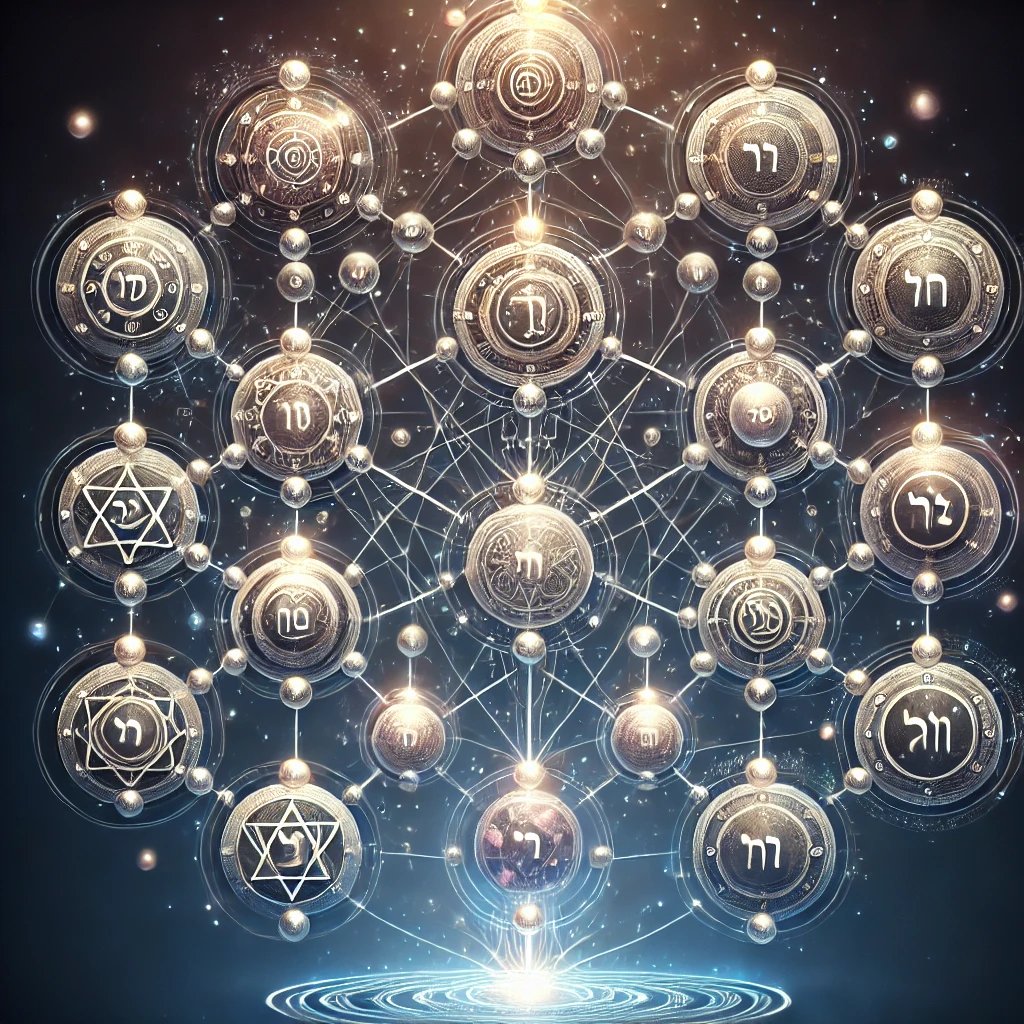Kabbalistic Traditions and Numerology: Unlocking the Secrets of the Universe
Kabbalistic traditions, deeply rooted in Jewish mysticism, offer an intricate, spiritual map that connects the universe, humanity, and the divine. One of the most fascinating aspects of Kabbalah is its use of numerology, where numbers hold profound symbolic meanings and play a pivotal role in understanding the hidden forces that shape our lives.
2/6/20253 min read


The Essence of Kabbalah
At its core, Kabbalah seeks to uncover the mysteries of existence—why we are here, what our purpose is, and how we can connect with the divine. It offers a unique way of interpreting ancient texts, particularly the Torah, not just as a literal account of historical events but as a mystical guide to the spiritual realms. Through Kabbalah, adherents believe they can tap into an enlightened state of consciousness, one that transcends the material world.
The Role of Numerology in Kabbalah
Numerology is one of the key tools in Kabbalah, used to interpret the hidden meanings of words, names, and even the structure of the universe itself. In Kabbalistic thought, each letter of the Hebrew alphabet is assigned a number, and by examining the numerical values of words, one can access deeper, more profound insights. This practice is known as Gematria, a form of numerology that assigns numeric equivalents to letters.
For example, the Hebrew word for life, Chai (חַי), is composed of two letters: Chet (ח) and Yud (י). The numerical value of Chet is 8, and Yud is 10. Together, they equal 18, which is considered a sacred number in Jewish tradition, symbolizing life and vitality.
Key Kabbalistic Numbers and Their Meanings
One (1): Unity and the divine. The number one represents God, the source of all creation, and the oneness of all existence. It is the ultimate truth, indivisible and whole.
Three (3): Balance and harmony. The number three represents completeness, such as the three aspects of the soul in Kabbalah: the Nefesh (life force), Ruach (spirit), and Neshamah (soul).
Seven (7): Perfection and spiritual completion. The number seven is sacred in many cultures, and in Kabbalah, it represents the completion of the divine work of creation. It is a symbol of spiritual fulfillment and the path to enlightenment.
Ten (10): The divine structure of the universe. In Kabbalah, the number ten refers to the Sefirot, the ten attributes or emanations through which God interacts with the world. These are represented on the Tree of Life, a central symbol in Kabbalistic teachings.
Eighteen (18): Life and blessing. As mentioned earlier, the number eighteen is revered as the numerical equivalent of Chai (life), making it a number associated with vitality, prosperity, and good fortune.
The Tree of Life and the Sefirot
At the heart of Kabbalistic teachings is the Tree of Life, a diagram that maps the structure of the universe and the path to spiritual enlightenment. The Tree is composed of ten Sefirot, each representing a different aspect of divine energy. These Sefirot are arranged in a way that mirrors the process of creation, from the most abstract and ethereal (Kether, the crown) to the most tangible and earthly (Malkuth, the kingdom). Understanding the interplay between these Sefirot is central to understanding Kabbalah and numerology.
Using Kabbalistic Numerology in Daily Life
While Kabbalistic numerology may seem esoteric or complex at first, it offers a fascinating lens through which we can interpret our lives. Many Kabbalists believe that by meditating on numbers and their meanings, individuals can align themselves more closely with the divine, uncover hidden truths, and gain clarity on their life’s purpose. For example, by analyzing the numerical value of your name or birthdate, you can gain insights into your character, strengths, and spiritual path.
In this way, Kabbalistic numerology becomes a powerful tool for personal transformation, a way to unlock the mysteries of the universe and step into a deeper understanding of yourself and the world around you.
Conclusion: The Hidden Power of Numbers
Kabbalistic traditions and numerology invite us to see the world in a new light—one where numbers are not just abstract symbols, but living, breathing forces that shape the fabric of reality. Through the lens of Kabbalah, we come to understand that the universe is full of hidden meanings, waiting for us to uncover them. By embracing the wisdom of the Sefirot and the power of numbers, we embark on a journey of spiritual discovery that can lead to a deeper connection with the divine and a more enlightened life.
